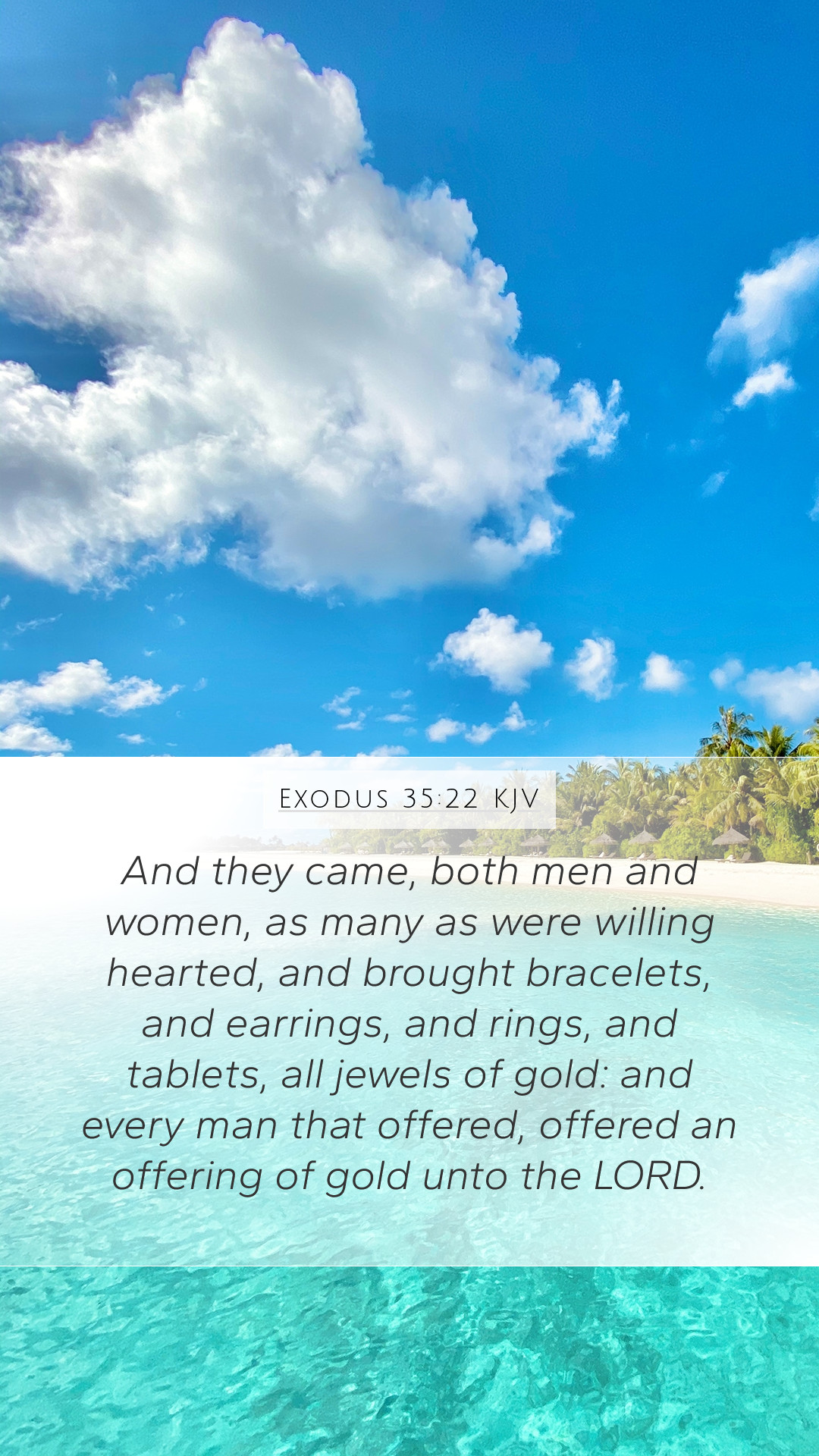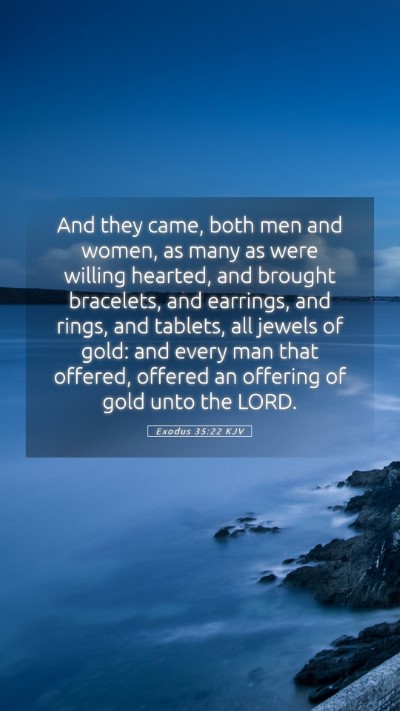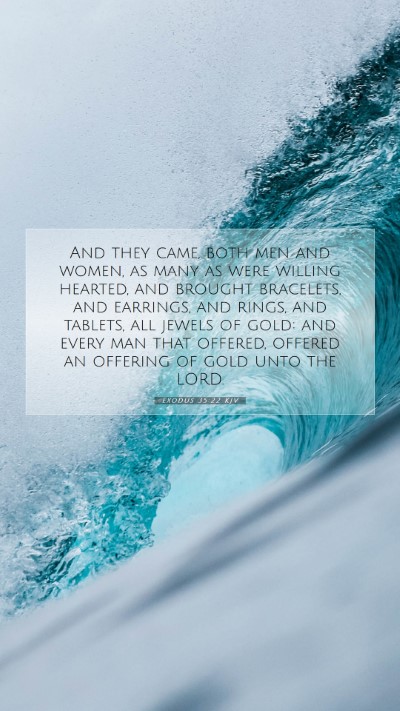Exodus 35:22 - Understanding the Scripture
Exodus 35:22 states: "And they came, both men and women, as many as were willinghearted, and brought bracelets, and earrings, and rings, and tablets, all jewels of gold: and every man that offered offered an offering of gold unto the Lord."
This verse captures a moment of voluntary generosity among the Israelites as they prepare to contribute to the construction of the Tabernacle. The individuals mentioned are characterized by their "willing hearts," reflecting the spiritual state in which they present their offerings.
Insights from Commentary
Insights from traditional commentaries provide a deeper understanding of this verse:
-
Matthew Henry:
Henry emphasizes the significance of the willing heart in giving. He points out that true offerings to God must stem from a readiness and heartfelt desire rather than obligation. The act of bringing gold jewels signifies the preparation and heartfelt devotion of the people in their service to God.
-
Albert Barnes:
Barnes elaborates on the types of offerings presented by the men and women, indicating that this generosity was essential for the establishment of the sacred dwelling place of God among them. He highlights that these contributions were not only practical but also symbolic of the people's commitment to God’s covenant and worship.
-
Adam Clarke:
Clarke remarks on the communal aspect of this giving, noting that it involved both men and women, thereby signifying unity in purpose. He also underlines the significance of the specific items (bracelets, earrings, rings) they brought, which were likely personal treasures symbolizing their personal investment in the communal project of building the Tabernacle.
Key Themes in Exodus 35:22
Willingness in Giving:
The verse emphasizes the importance of a willing spirit in giving to God. It indicates that offerings accepted by God must come from a place of genuine desire and love.
Community and Participation:
The mention of both men and women highlights the collective effort of the community in worship and service to God, promoting an understanding of unity in tasks of faith.
Symbolism of Offerings:
The various ornaments symbolize personal sacrifices, as they were items of value to the individuals donating them, demonstrating commitment and dedication to God's service.
Biblical Exegesis and Application
Exodus 35:22 teaches us valuable lessons about the nature of our offerings and our approach to serving God. The key takeaways include:
-
Understanding that God desires offerings that reflect our hearts—willing and joyful contributions.
-
Recognizing the importance of unity within a faith community, where each member’s contribution has value.
-
Applying the principle of sacrificial love, where what we give represents our commitment to God and His work.
Related Biblical Cross References
- 2 Corinthians 9:7 - "Each one must give as he has decided in his heart, not reluctantly or under compulsion, for God loves a cheerful giver."
- Exodus 25:2 - "Speak to the people of Israel that they take for me a contribution. From every man whose heart moves him, you shall receive the contribution for me."
- Matthew 6:21 - "For where your treasure is, there your heart will be also."
- 1 Chronicles 29:14 - "But who am I, and what is my people, that we should be able thus to offer willingly?"
- Leviticus 22:29 - "When you sacrifice a thank offering to the Lord, sacrifice it in such a way that it will be accepted on your behalf."
Conclusion
Through careful analysis of Exodus 35:22, we draw valuable lessons on the heart of giving and the communal responsibilities believers share. The scriptures offer profound insights into how we can approach God with our offerings and ensure they come from a place of love and willingness. This understanding fosters a deeper connection to the Biblical text and encourages individual and communal participation in faith.


